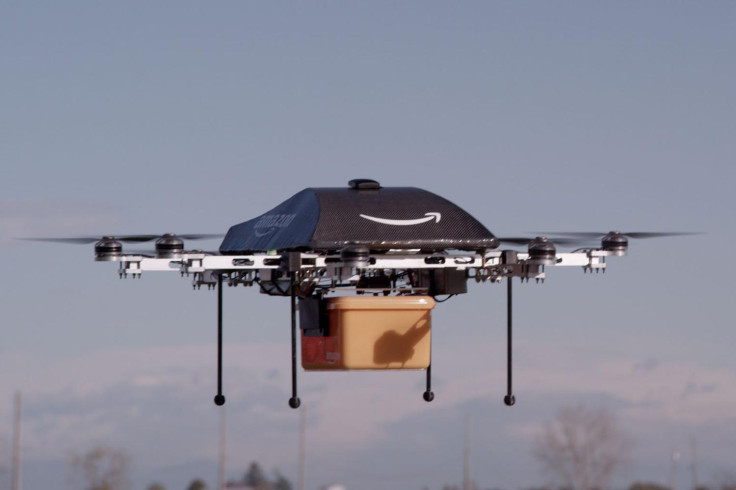Amazon Prime Air wants to achieve 'real teleportation' with helicopter drone delivery service

On 15 February, the US Federal Aviation Administration (FAA) announced its proposed new rules for commercial helicopter drones, which prohibit operators from flying drones out of their line of sight.
While this means bad news for Amazon's much talked about Prime Air helicopter drone delivery service, the firm remains firmly dedicated to bringing delivery via unmanned aerial vehicles (UAV) to the world and is seeking to deploy the technology in other countries where legislation is more embracing first.
"Think of mobile phones—they teleport the Internet to us. We used to have to go to a desktop, sit down, and log on to access the Internet," Amazon Prime Air's vice president Gur Kimchi told Popular Science.
"Now, it comes to us, wherever we are. We're aiming to do the same for physical goods. Prime Air is trying to get as close as possible to real teleportation—without breaking the laws of physics."
As close to "real teleportation"
But what exactly does Kimchi mean by teleportation, exactly? Well, he defines it as being able to order an emergency item off Amazon and only have to wait a short amount of time for it to arrive.
"I have three kids, and once when my wife was on a business trip one of the little ones woke up in the middle of the night screaming for a pacifier, which I couldn't find," explained Kimchi.
"I got lucky and found the pacifier. But the better solution was for the pacifier to come to me. I imagine myself pulling out my phone, pushing a button, and 30 minutes later the pacifier shows up."
Of course there's still the problem that people really don't like helicopter drones flying over them, their properties or public places, and while legislation might be much slower in other countries, UAVs might still not be welcome.
"Well, people were distrusting of cars when they were first introduced; they didn't want cars to go faster than horses. But I think the other part of it is that for Amazon, safety is a main objective. I would reassure people that we won't release anything until we know this is a safe system," Kimchi stressed.
"Drones are already being used for tasks such as crop monitoring and bridge inspection. We won't see broad adoption overnight, but we will get there, and we'll get there safely in the next few years."
Where can Amazon legally fly UAVs?
For now, Amazon would be welcomed with open arms by Germany, which is allowing DHL to test its "Parcelcopter" medical drone delivery service on Juist, a remote German island in the southern North Sea with a population of 2,000 people.
Australia has also been vocal in opening its arms to companies seeking to trial helicopter drone delivery services, and Google ran its tests for Project Wing in Queensland last summer.
China also seems to be more relaxed on helicopter drone regulations, as it has granted online retail giant Alibaba permission to run a three-day trial in February delivering tea using UAVs to residents living within an hour of distribution centres in Shanghai, Beijing and Guangzhou.
As for the UK, lawmakers are still deliberating civil, commercial and government use of remotely piloted aircraft systems (as they are known there) after taking evidence from industry experts from October to December 2014, and have yet to release confirmed guidelines on their use.
© Copyright IBTimes 2025. All rights reserved.






















